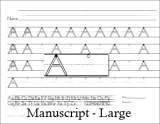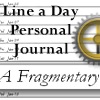Verbs
A verb is a part of speech that expresses action or a state of being. Inflections indicates tense (and sometimes person and number) and the mood of a verb. The verb is essential to the complete sentence.
Barry runs. Runs is the verb. It is expressing the action of the subject Barry.
Intransitive Verbs
Runs is an intransitive verb. An intransitive verb does not require an object to complete its meaning.
List of some intransitive verbs
- sit
- walk
- study
- go
There are many more intransitive verbs, much more than I care to write about. With an intransitive verb you can make short sentences:
- She sits.
- He walks.
- They study.
- Let's go.
NONE of these sentences have objects.
What If the sentences are worded like this?
- She sits by herself. prepositional phrase
- He quickly walks past the door. adverb, prepositional phrase
- They study in a well lit room. prepositional phrase
- Let's go to the lake and fish. prepositional phrase
The verbs remain intransitive because the assorted added words and phases are not direct objects. They are an assortment of adverbs and prepositional phrases.
Assignments for Intransitive Verbs
Assignment 1
Find five intransitive verbs in your dictionary. Make a sentence with each of the five intransitive verbs.
Assignment 2
Go to Who Needs an Illustration, Sentence Building Activity Two and complete a series of exercises.
Some verbs can be either an intransitive verb or a transitive verb.
read is one...
I read a newspaper. Newspaper is the object in this sentence.
I read well. "Well" is an adverb. This sentence has no object.
Transitive Verbs
A transitive verb is a verb that requires a direct object to complete its meaning.
- We called Uncle Joe. (Uncle Joe is the direct object.)
- We gave him our number. (Number is the direct object.)
The two example sentences above have transitive verbs. Try the sentences without the direct objects:
- We called.
- We gave him our.
Read about direct objects at Objects in Sentences
Only sentences with transitive verbs can be made passive.
- Mother chose a good recipe. active
- A good recipe was chosen by mother. passive
- James took three apples. active
- Three apples were taken by James. passive
Assignments for Transitive Verbs
Assignment 1
Open a dictionary and find five transitive verbs; they are sometimes marked with v.t..With the five transitive verbs, do the following:
Make sentences with the five transitive verbs.
Find the direct object in your sentences.
Make the sentences passive.
Assignment 2
Look up the following words in a dictionary. State whether each verb is transitive or intransitive, and illustrate the correct use of each verb: propose, purpose, sit, set, frighten, scare, learn, teach, isolate, derogate, desiccate, elicit, ricochet, synthesize, instigate, apprehend, envisage, deploy.
Assignment 3
Go to Who Needs an Illustration, Sentence Building Activity One and complete a series of exercises.
*Inflection
Change in the form of the word to show variation of meaning (as with inflections of number, comparison, and tense), or to show the relation of a word to another word (as with the inflections of case and person).
The inflection of substantives is called declension, that of adjectives and adverbs comparison, and that of verbs conjugation.
The various forms that a word receives in inflection are its inflectional forms e.g.:
love, loved, and loving are inflectional forms of the verb to love
man, man's, men, men's, are the inflectional forms of the noun man.
*Definition of inflection from College Handbook of Composition by Wooley and Scott, 1928.
Hello Visitor!
I am currently working on this website to add to its ginormousness. Thank you for visiting, and please subscribe yearly to access my many printable files! Donna Young
May 13, 2021

 Coloring Shapes
Coloring Shapes Unlock A Cell Sometimes
Unlock A Cell Sometimes "Manuscript Large"
"Manuscript Large"


